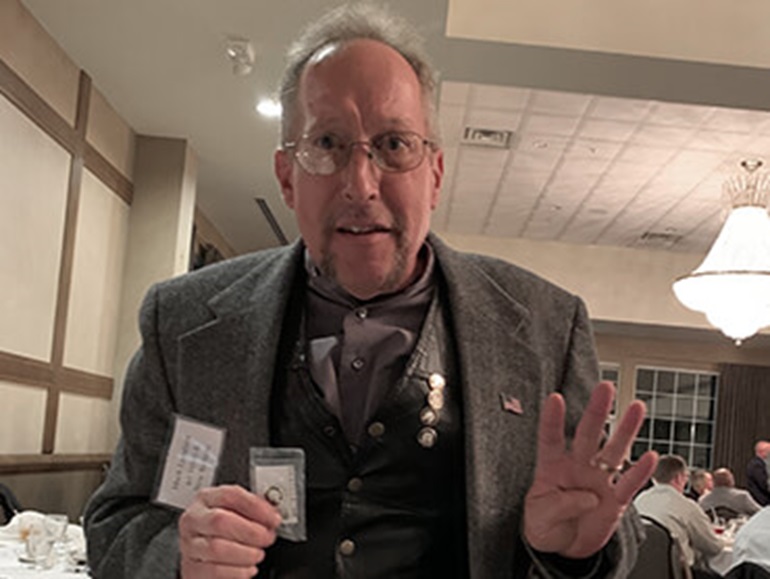Mark's story

The Gift of Hope and Healing
Mark Lambert had a tooth extracted in early March and on his way home, fell outside. His wife, Carol, found him on the ground, unconscious and bleeding from the head.
Carol dialed 911 and emergency room doctors used surgical staples to close his wound. Inexplicably, his breathing worsened and he was placed on a ventilator. Despite numerous scans that showed no serious injury, Mark continued to struggle and spent weeks in intensive care. Several attempts were made to wean him off the ventilator, but they were unsuccessful. As a result, the medical team inserted airway support and a feeding tube, while Carol considered long-term plans for Mark’s recovery.
She chose Regency Hospital Northwest Indiana because Mark’s doctors could continue seeing him, and it was located within a general hospital.
Mark arrived in early April, unable to breathe, speak, eat, walk or move. He was confused, and sometimes agitated.
Carol’s primary goal was to get Mark off the ventilator and well enough to return home. A physician-led team, including nurses and therapists, created a plan to do that.
Respiratory therapists evaluated him and gradually reduced the settings on Mark’s ventilator, testing whether his lungs were ready to do more work. They led him through breathing and coughing exercises.
Concurrently, physical and occupational therapists deployed our mobility program. They encouraged him to sit up in bed and roll from side to side. They also helped him move his arms and legs. Some studies have shown these small movements can make it easier for patients to liberate from a ventilator.
After three weeks, Mark was strong enough to have his ventilator removed. This was a key turning point, because it let Carol and his family know Mark was headed in the right direction. He spent another week using supplemental oxygen before it, too, was discontinued and Mark was breathing on his own.
Mark began working with speech therapists, who led him through jaw, mouth, tongue and throat exercises. He was able to form a few words and continues to work on swallowing in hopes of resuming a regular diet.
Despite being unable to visit due to COVID-19 restrictions, Carol said she was thrilled with the communication she’s gotten from his treatment team. The hospital arranged regular video chat sessions so Mark could see her face, which always made him smile.
“We never thought he would make it off the ventilator, much less open his eyes and try and talk to us,” Carol said.
By mid-May, Mark was ready for the next phase of recovery. He departed for a skilled nursing facility, spending two weeks gaining additional strength and stamina. Afterward, Mark went home. He is eating a regular diet, talking as well as he did prior to the accident, resuming daily activity with minimal help and working through residual arm and hand challenges.
“Thank you for the rehabilitation, and hope, you gave our family when things looked very bleak,” Carol said.